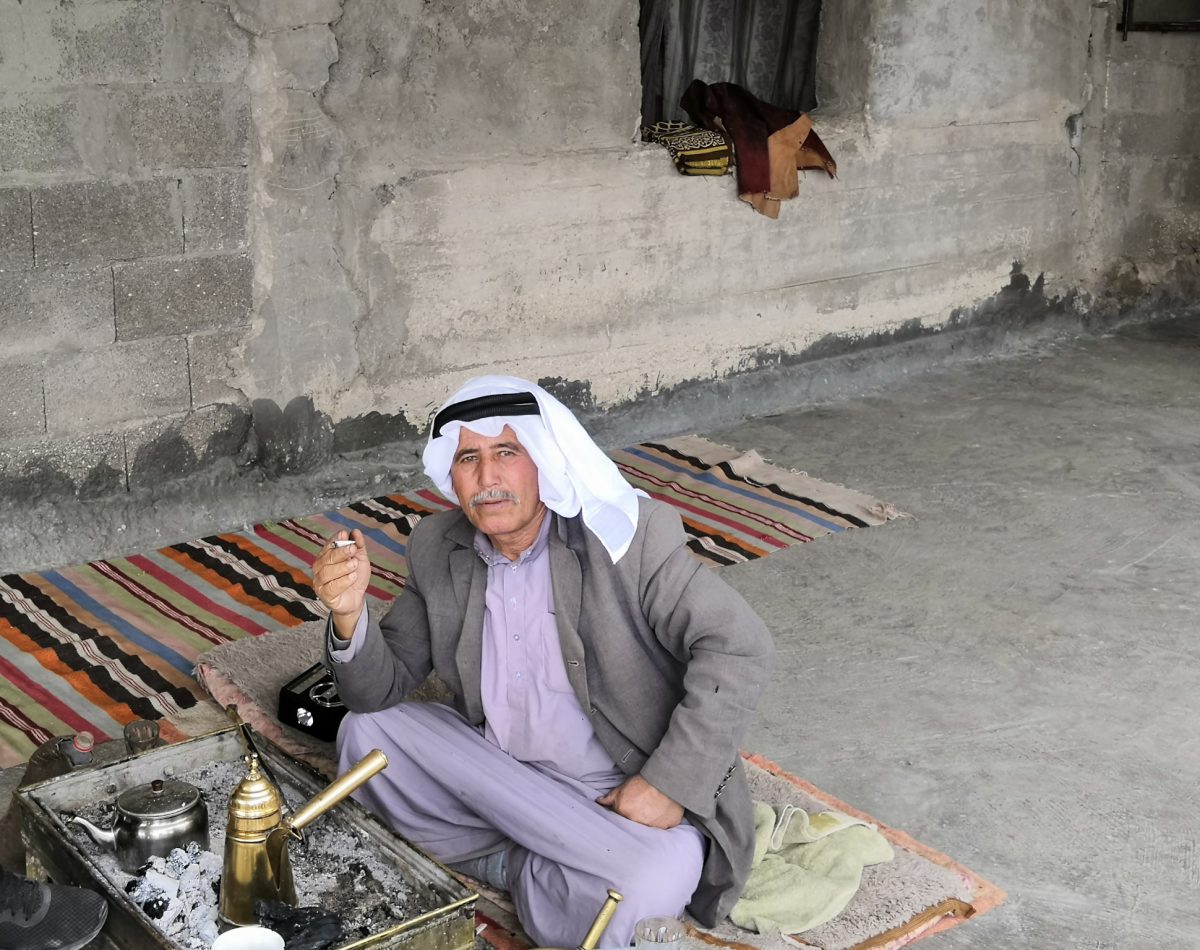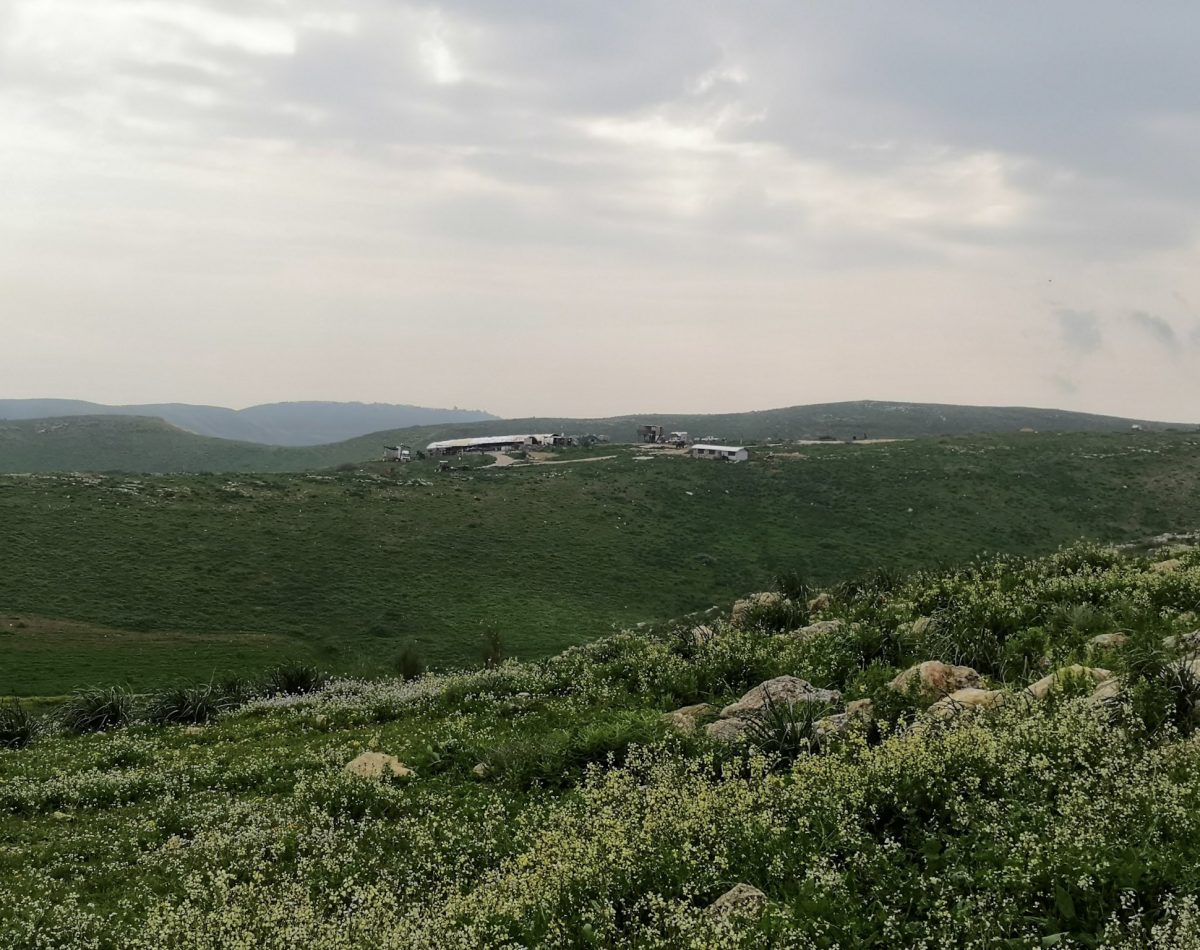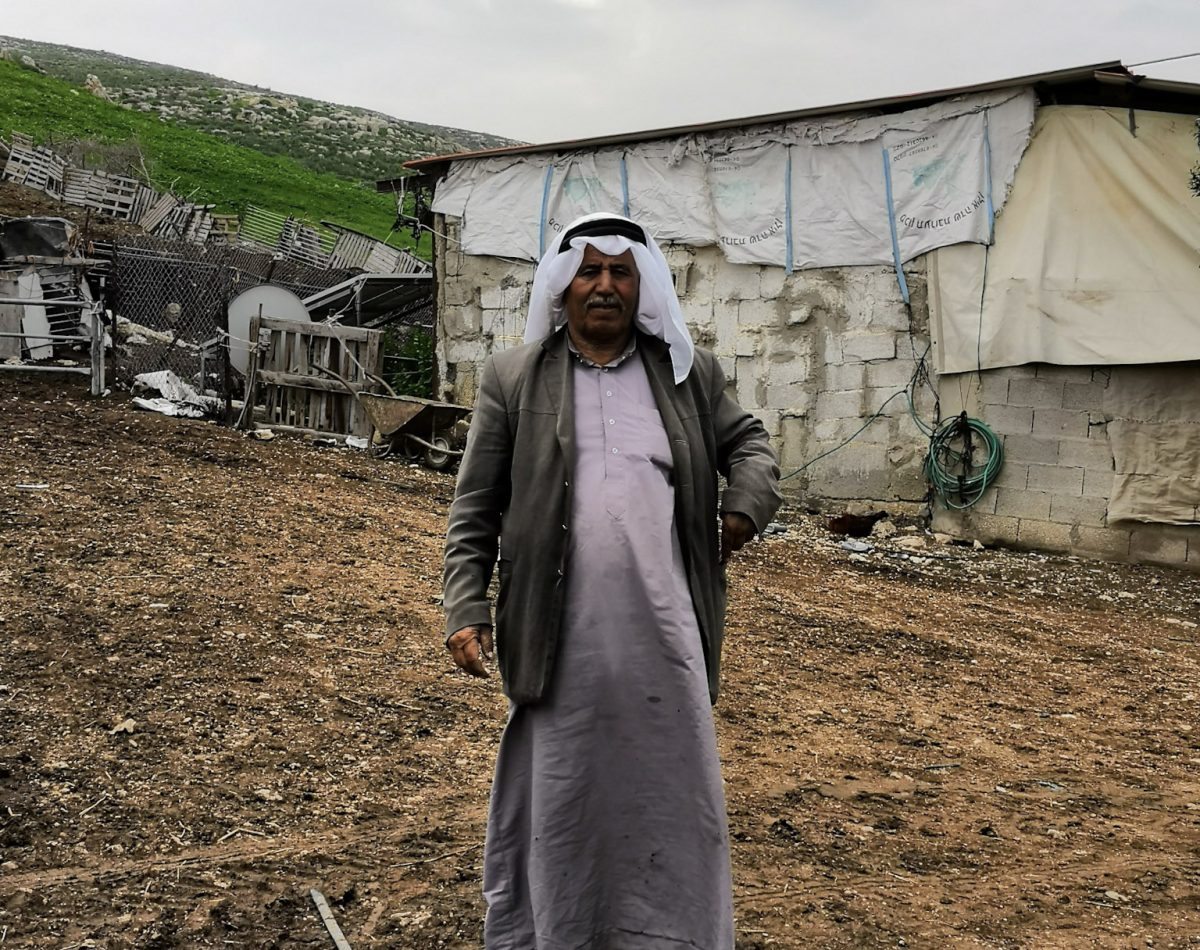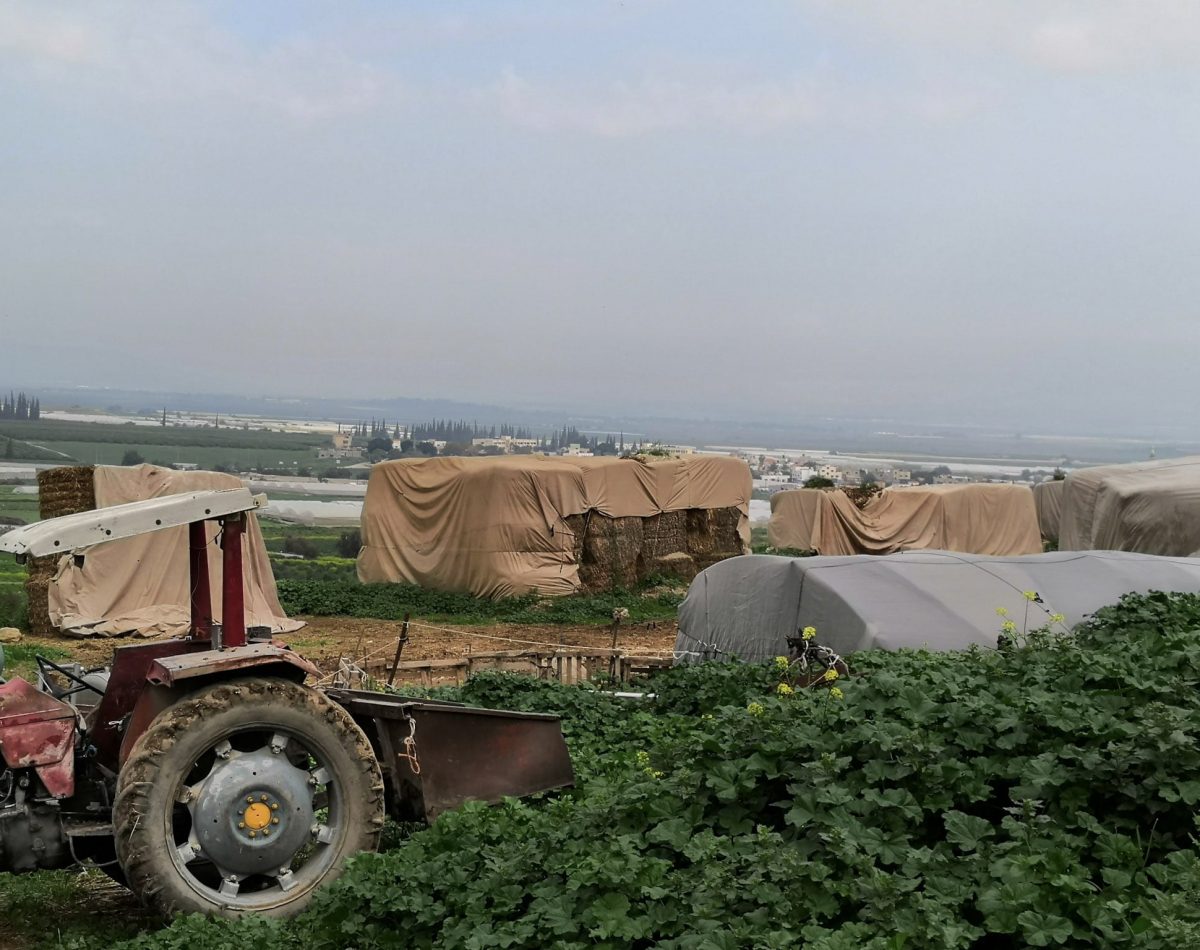‘I have Tabu [ownership] papers for all of this land. Where is the justice?
Abu Mahyoub, Jordan Valley
Abu Mahyoub on his porch
‘Ahlan wa sahlan!’ Comes the familiar welcome as we meet with Abu Mahyoub on the porch of his small farm house. He greets each of us warmly and almost immediately begins handing around hot cups of thick, delicious cardamom laced coffee; perfect for taking the edge off the damp and chilly (by middle eastern standards) February morning. We’re in the midst of the rainy season and the Jordan Valley is covered in a rich verdant carpet of grasses and meadow flowers.
‘It’s been a good season this year?’ I ask, as the conversation turns to the weather. ‘Yes. If only I could make use of it’ comes a sullen reply from the man who minutes before was greeting us so enthusiastically. ‘It’s been months since I was last able to let my cows out’. Indeed, at a time when most farmers are out in the fields with their animals; Abu Mahyoub’s cows are all still in their muddy fenced enclosures beside his house. ‘This is not a good life for them.’
Life has been getting progressively harder for this farming community since the construction of the illegal Israeli settlement outpost, in 2016, atop the next hill over from us. Just a few hundred meters away.
‘Since the [Israeli] settlers and army started making trouble for us, nobody can take their animals out anymore. It’s too dangerous… Those settlers are crazy, they threaten us with weapons and attack our animals if they see us in the fields. Sometimes they come into the village and make trouble.’
Abu Mahyoub
‘The army doesn’t help us. They just arrest us like we’re criminals.’
Abu Mahyoub
In 2017 an investigation by Yesh Din, an Israeli human rights organisation which monitors and campaigns against human rights violations in the West Bank, found that since 2005 only 3% of investigations of ideologically motivated crime against Palestinians (i.e. settler violence / harassment) have resulted in a conviction. What’s more, in the same report they note that between 2015 – 2016, the number of victims who were uninterested in filing a legal complaint increased from 30% to 42%. An indicator that many Palestinians are becoming increasingly skeptical of the Israeli authorities willingness/ability to support them.
‘I have Tabu [ownership] papers for all of this land. Where is the justice?.’
Abu Mahyoub





